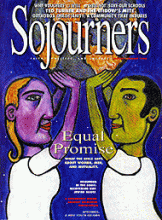Nothing could be more futile than to debateas so many doabout whether an abstraction called "school choice" is a good or a bad thing. Choice is massively present in American education, and those who exercise it would not willingly give it up. But like many of the goods we value, it is unevenly distributed in a way that reflects the income, influence, and sophistication of different groups in society.
For that reason, it should be no surprise that the support for school choice, as reflected in many opinion surveys, is strongest among those who have the least opportunity to exercise it, and for whom the stakes are highest. Again and again, the strongest support for parent choice of schools, including private schools with a religious identity, was among urban and minority respondents with school-aged children.
Those who oppose public policies that would allow poor parents to choose what schools their children will attend, claiming that this would undermine the common public school and thus divide American society, do not apply that argument consistently. After all, if the unity of our society requires that children from different backgrounds attend school together, why should we allow the affluent to enroll their children in private schools or escape to the suburbs? Why not forbid private schools and mandate metropolitan school desegregation?
We have not heard such proposals from the defenders of the public school monopoly, nor are we likely to. After all, big-city public schoolteachers are twice as likely as the general public to put their own children in private schools, and have strongly resisted residency laws requiring them to live within the school districts that employ them. Few, if any, of their allies in Congress send their own children to the District of Columbia public schools.
Read the Full Article

